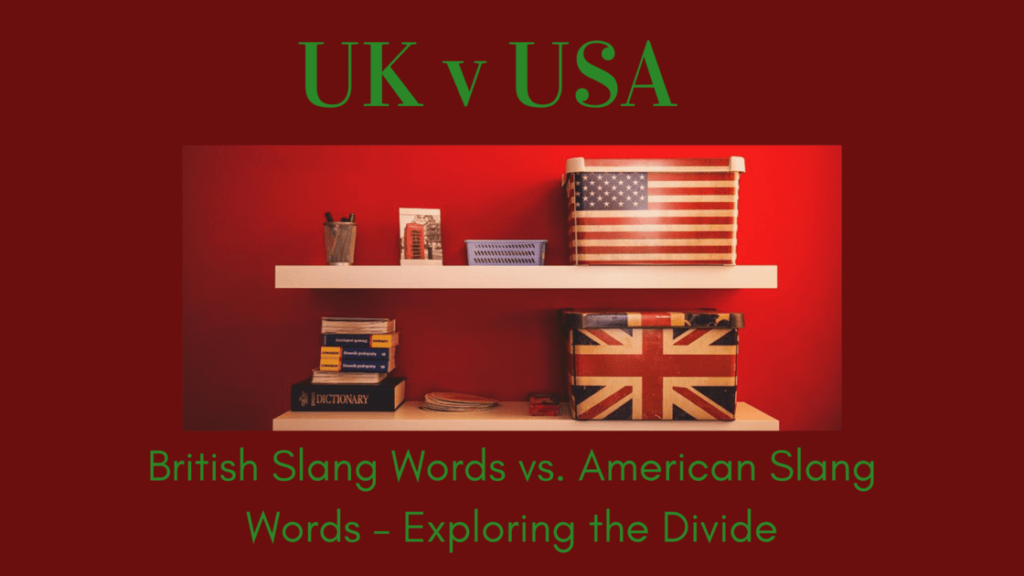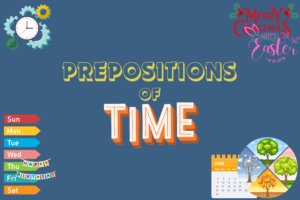Introduction
Slang is the colourful, ever-evolving underbelly of language, enriching communication with creativity and cultural context. Whether you’re chatting with a Londoner or a New Yorker, you’re bound to encounter slang words and phrases that might leave you puzzled. In this article, we embark on a linguistic journey to unravel the fascinating disparities between British slang and American slang, exploring the roots, influences, and impact of these unique expressions.
Defining Slang
Slang can be defined as a set of informal words, phrases, and expressions used in everyday language, often by specific social groups, to convey shared meanings. It’s a linguistic playground where words take on new roles, veering away from formal language to establish connections and reinforce group identities.
The Evolution of Slang
Slang is in a constant state of flux, adapting to the evolving needs of its users. It’s a living testament to the dynamic nature of language. Just as cultures change, so do the words they use. Slang words can emerge from cultural shifts, technological advancements, or even subcultural influences, such as music, fashion, and social media.
British Slang: A Quirky Linguistic Playground
Regional Variations: British slang is as diverse as the nation itself. From Cockney rhyming slang in London to Scouse in Liverpool and Geordie in Newcastle, each region has its unique expressions. For instance, while Londoners might “have a butcher’s” (look) at something, Glaswegians would “take a skeg” (glance). In Manchester, you might hear someone say “gaff” (home) instead of “house.”
Historical Influence: The British Empire’s history of colonization has had a profound impact on its slang. Words borrowed from various languages and cultures have found a place in British slang, reflecting the nation’s rich and complex history. For example, “bungalow” comes from Hindi, and “pyjamas” has Persian origins.
Social and Class-Based Slang: British society often attaches certain slang words and phrases to specific social classes. For instance, the term “posh” denotes upper-class elegance, while “chav” refers to a working-class stereotype. Meanwhile, “gobsmacked” (astonished) is a classic British slang term that transcends social boundaries.
Cultural References: British slang frequently draws from cultural icons and references, such as “Sherlock” (detective) or “Bobby Moore” (score). These references add depth and humor to everyday conversation. Imagine a Brit describing a clever friend as “having a bit of Sherlock in them.”
American Slang: The Melting Pot of Expressions
Regional Dialects: The United States, with its vast geographic expanse, boasts a wide array of regional slang. For instance, “soda” in the East is “pop” in the Midwest, and “firefly” in some regions is “lightning bug” in others. In the South, it’s common to hear “y’all” (you all) used as both a singular and plural pronoun.
Cultural Influence: American slang mirrors the nation’s multicultural heritage. Phrases like “cool” and “rock ‘n’ roll” have become global idioms, thanks to the influence of American music, movies, and pop culture. For example, “cool” in American English signifies approval or positivity, just as it does in British English.
Generational Divide: Slang can also vary significantly between generations. While older Americans may say “groovy,” younger generations might opt for “lit” or “on fleek,” reflecting changing attitudes, trends, and technologies. “Groovy” was popular in the 1960s, while “lit” and “on fleek” gained popularity in the 21st century.
Internet and Technology: The digital age has spawned a new generation of American slang, with words like “selfie,” “meme,” and “emoji” becoming commonplace in everyday conversation. For instance, “binge-watch” (watching multiple episodes of a TV show in one sitting) has become prevalent in the age of streaming services.
Notable Differences
Vocabulary: British and American slang often feature different words for the same concept. For example, “boot” (trunk of a car) in the UK becomes “trunk” in the US, while “biscuit” (cookie) transforms into “cookie” across the Atlantic. Americans may ask for a “napkin” while Brits would request a “serviette.”
Spelling and Pronunciation: Pronunciation and spelling variations can lead to confusion. Consider “aluminium” (UK) versus “aluminum” (US) or “colour” (UK) versus “color” (US). Another example is the British “centre” versus the American “center.”
Cultural Significance: Some slang words carry cultural significance. “Pavement” (UK) refers to the sidewalk, but in the US, it’s the “sidewalk.” Likewise, “flat” (UK) means an apartment, while in the US, it’s simply an “apartment.” Brits might refer to a bathroom as the “loo,” whereas Americans would say “restroom.”
Common Ground: Shared Slang
Interestingly, despite these disparities, there are numerous slang terms that are understood on both sides of the Atlantic. Words like “cool,” “okay,” “guys,” and “movie” are universally recognized, showcasing the global reach of American culture and language.
Impact on Communication
While slang is undoubtedly a fun and expressive aspect of language, it can sometimes be a barrier to effective communication, especially when interacting with speakers from a different linguistic background. Being aware of these differences is crucial for avoiding misunderstandings and building connections in our increasingly globalized world.
Further Examples:
Bird – In the UK if someone calls you a bird it is actually a colloquial way to say “a woman.” However, the Americans still use it to refer to our feathered friends.
Biscuit – delicious, thin baked treat you have with your cup of tea, often covered in chocolate! In the US it is a dense chunk of buttery dough served with chicken and gravy.
Football- In the UK you use your foot and kick the ball with your foot (soccer to the Americans), however in America you throw a ball and catch it in your arms.. no idea why you would call it football!!
Geezer – For both the UK and USA this is a rather rude word. Brits use it to describe hypermasculine men – those who like beer, football, and other stereotypical manly stuff. While in the US, a geezer is just an older man (not very polite!).
Jumper – In the UK it is a piece of clothing you wear when you are cold – Americans say sweater. That said in the US, the word has a much darker definition, referring to someone who is about or has already committed suicide by jumping from a tall building!
Pants – Careful with this one as there is a big difference! – it is trousers in America and don’t ask a British person about their pants as you will be asking them about their underwear (knickers)!
Pissed – When people in America are pissed, they are furious about something. Where as for a British person it can mean the same OR if someone tells you that they are pissed –they are drunk.
Purse – In the US, people say purse when they refer to a lady’s handbag, however for the Brits it is used for a wallet.
Rubber – If you have had a British education you will know that a rubber is a little thing that helps you to get rid of pencil marks. However, in the US, it is not a kid’s word. They use it to refer to a condom. So be careful when you ask for rubber from your American friend – they might be a little confused…. It has happened to me!!
Conclusion
In the world of language, diversity is key, and slang exemplifies this diversity beautifully. British slang and American slang are two distinct dialects within the larger realm of English, each a testament to the cultural, historical, and social intricacies of their respective nations. Embracing this linguistic tapestry enhances our ability to connect, understand, and appreciate the richness of human expression through language. So, whether you’re “chuffed” in Britain or “stoked” in America, remember, language is a journey worth exploring—one slang word at a time.






